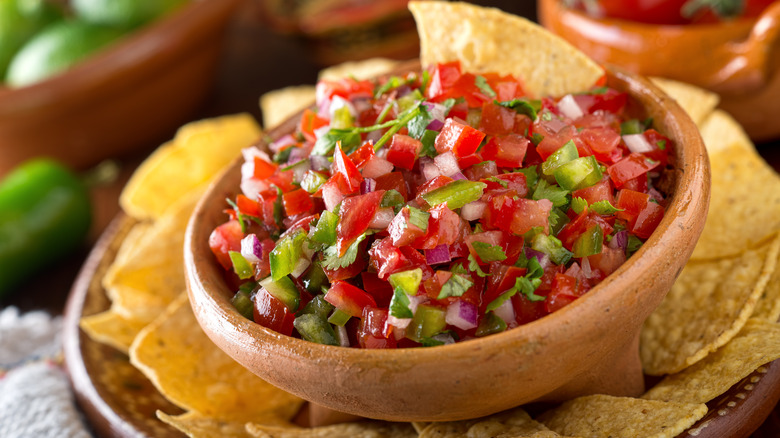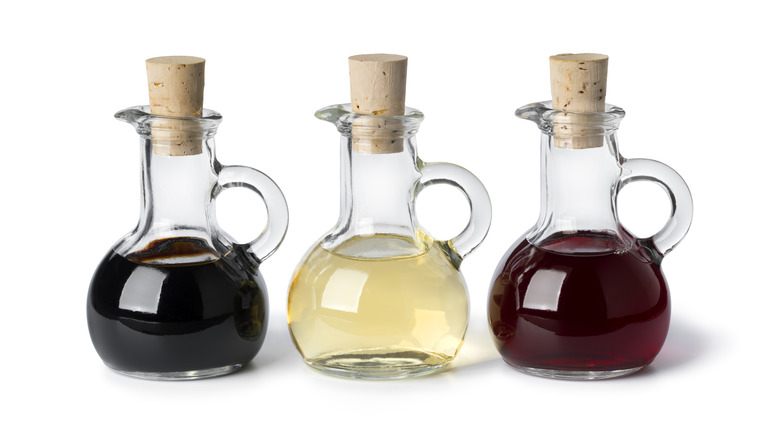The Overpowering Ingredients You Should Skip For Homemade Salsa
Creating a perfect salsa is similar to a ballet dancer learning to balance on their toes: It takes practice. Finding the correct ratio of ingredients and not choosing flavors that clash are essential if you want to achieve just the right amount of savory, sweet, and heat. At its most basic, a good salsa is comprised of chopped tomatoes, onions, cilantro, garlic, lime, salt, a little jalapeno for a kick, some vinegar, and sugar. But forget to de-seed the tomatoes, use the wrong kind of vinegar, or experiment with a little lime zest instead of using the juice, and your salsa could become a cacophony of flavors that overwhelm the taste buds.
To avoid this disaster, you need to pay close attention to the acid you choose to use, because it can make or break your salsa. Champagne and rice vinegar can be lovely in a vinaigrette or marinade, but neither should be your first choice for a salsa. In fact, Bon Appetit cautions that if you want to avoid ruining your homemade salsa, you want to also stay clear of both balsamic and apple cider vinegar, particularly if you want to please those with a serious salsa palate. So, what type of vinegar should you use?
Basic, white vinegar
It might offend your gourmet sensibility, but white or red vinegar should be your go-to when making a homemade salsa. Why? The Kitchen is My Playground tested various kinds of vinegar paired with tomatoes and found white vinegar to be the clear winner. Unlike apple cider and balsamic vinegar, which can crush the other flavors of this recipe, white vinegar doesn't try and upstage the tomatoes in your salsa. In fact, the right vinegar will help you taste all of the other flavors of your salsa, and highlight those that it counters. As cookbook author James Peterson told the Chicago Tribune, "Vinegar brings out the intrinsic nature of whatever you're cooking. ... You'll taste more of the other flavors."
Another ingredient that can cause your salsa to take issue is using lime zest over lime juice. Bon Appetit asserts lime zest is too "perfume-y" for a salsa. Instead, the recommendation is to use lime juice in your salsa instead as it will brighten its flavor; however, don't be heavy-handed with this ingredient, or you may find that your salsa is too tart and causes your eaters to pucker as they pile your homemade dip on their corn chips.

